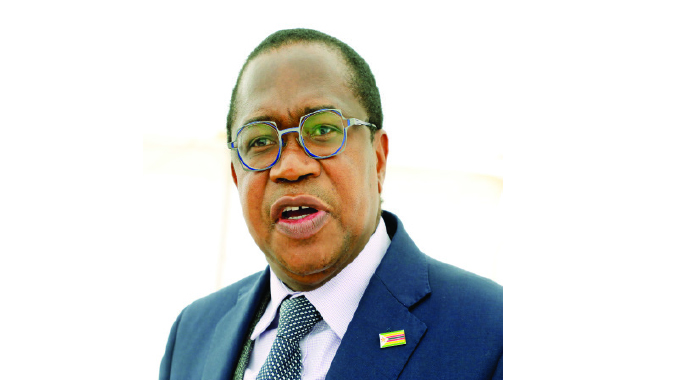Can special drawing rights, aid and Covid-19 assistance help Africa?

Archford Chikawa
Vital initiatives have been taken by African countries to counter the health, social, financial, and economic impacts of the pandemic since first cases of Covid-19 in February 2020 were recorded. All together, Africa has not coped well reasonably to the economic impacts.
Undeniably, recovering from trade reductions, capital flight, mired economic activity and reduction in reserves requires a lot more than most African countries can afford.
The United Nations Conference on Trade and Development estimates that the continent requires US$200 billion to address the financial and socioeconomic impacts of the global pandemic. Moreover, the costs are expected to span decades, according to a recent study by the United Nations Development Programme on the long-term effects of the pandemic on African economies.
Normally, African countries would raise the funds to jump-start their economic recovery by availing themselves to concessional finance, commercial borrowing, or increasing domestic resource mobilisation.
These options are unavailable or inadequate in this global pandemic. Africa continues to face difficulty in accessing requisite amounts of concessional finance for three reasons.
First, traditional donors are winding from the pandemic and unlikely to commit or disburse additional resources: Bilateral aid collapsed by 19 percent in 2020.
Second, Covid-19 has pushed millions of middle-class families’ worldwide back into extreme poverty. This drift intensifies competition for scarce and limited development assistance.
Third, 54 percent of African countries are classified as middle-income and will not have access to concessional financing.
Besides, loans are unwise since the pandemic has worsened Africa’s established external debt vulnerability. Economic shrinkage, reversed development, increasing levels of unemployment, and growing poverty make it harder to mobilise additional domestic resources without compromising lives and livelihoods.
Decades of consistent development gains in Africa has been reversed by Covid-19. Lacking additional and urgent financial assistance, African countries face the risk of not attaining the Sustainable Development Goals.
Addressing the pandemic in Africa is a global authoritative. The globalised nature of the pandemic and the urgent need to revive economies and prevent undue suffering needs a collective global reaction.
On March 19, G-7 finance ministers agreed to support a substantial increase in the IMF’s special drawing rights (SDRs) to help deliver added resources to fight the pandemic. SDRs are used by IMF member countries to complement their official reserves and supplement global liquidity.
Nonetheless, African countries will receive US$32,2 billion, 6,4 percent of the proposed allocation, a clearly inadequate amount. Therefore, more wealthy countries must contribute their share allocation to lower-income countries. If only the G-7 countries partake, Africa’s share would rise to over US$160 billion.
If the improved allocations are dispersed to African countries according to SDR quota size, Africa’s middle-income countries will receive 81 percent of the new allocations, a welcome advantage for countries that are climbing the stairs of the development ladder but are finding it gradually difficult to access concessional financing.
The picture is faintly different when considering new allocations as a proportion of GDP: seven of the top 10 recipients are low-income countries, endorsing the extent to which these allocations would be impactful, even in Africa’s smaller economies.
Besides, debt-stressed African countries and those making most progress with human development indicators will be among the top beneficiaries.
Increasing reserves for African countries through SDR is not just a financial or macroeconomic issue, it is basically about helping African countries for fast, justifiable, and bearable economic development.
How to address pervasive and persistent development financing issues that have plagued the continent for decades must be looked beyond liquidity.
Definitely, increased reserves provide African countries with essential fiscal breathing space, enable African governments to dedicate more devotion to vital social investments in health, education, and resilient livelihoods.
Countries will also be able to concentrate on employment creation and value chain reengineering that would give millions of Africans the chance to poverty reduction through self-owned businesses and the embracing of transformative technology.
Africans have established capacity to redirect windfall gains for social investments in the past.
Many African governments significantly increased pro-poor and social spending as part of the heavily indebted poor countries debt relief initiative in the late 1990s and early 2000s.
The anticipated SDR enlargement could have a comparable beneficial effect on Africa with countries adopting economic transformation via strategic investments.
However, for success, pay particular attention to the spikey, but vital, matter of governance, both regional and global. Globally, steps must be taken to ensure that these windfall gains are not spent servicing external debt.
The Debt Service Suspension Initiative and other pandemic-related debt relief initiatives should be prolonged and protracted. Also, strategies must be put in place to stop unscrupulous schemes that abuse financial markets and international courts to deprive African countries of the full benefit of the proposed initiative.
After receiving debt relief in the early 2000s, a number of vulture funds purchased outstanding African debt for a fraction of their value and then successfully sued African governments for the full value. This must not be allowed to happen again.
The SDR proposal recognises the magnitude and urgency of the development challenges African countries are facing.
Going beyond the G-7 to include other development partners like China, Saudi Arabia, and South Korea will provide African countries with substantially more resources to tackle the pernicious effects of Covid-19 and to build forward better.
Laying the foundation for a more resilient and less dependent Africa is good for the global economy and bodes well for stability and sustainability.
Invariably, this would help Africa take the necessary steps to get back on track to attain the SDGs.
Archford Chikawa is a MSc student in International Trade and Diplomacy at University of Zimbabwe.











Comments